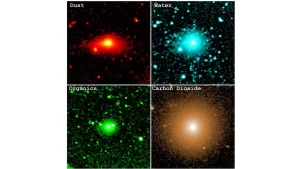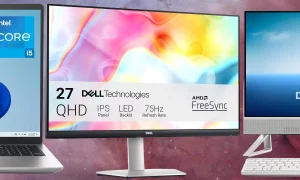Chevron’s carbon offsets are mostly ‘junk,’ according to global watchdog investigation

Update May 25, 2023: This post has been updated with a comment from Chevron.
The already questionable $2 billion a year voluntary emissions offset market is facing even more scrutiny. An investigation by transnational corporate watchdog Corporate Accountability first reported in The Guardian found that carbon offsets from fossil fuel giant Chevron are mostly worthless—could also cause harm. The investigation found that the company relies on “junk” carbon offsets and “unviable” technologies. These actions do little to offset the company’s greenhouse gas emissions.
The new research from Corporate Accountability found that between 2020 and 2022, 93 percent of the offsets that Chevron bought and counted towards their climate targets from voluntary carbon markets were actually too environmentally problematic to be considered as anything other than worthless or junk.
Carbon offsets are tradable “rights” or certificates that allow the buyer to compensate for 1 ton of carbon dioxide or the equivalent in greenhouse gasses. These offsets are usually in the form of an investment in emissions-reducing environmental projects in other parts of the world.
An investigation by The Guardian and Germany’s Die Zeit, and the nonprofit journalism outfit, SourceMaterial earlier this year found that the world’s leading provider of these offsets, Verra, may be making the climate worse. Verra is often used by major corporations like Shell and Disney, but over 90 percent of Verra’s most popular rainforest offset credits were discovered to be “phantom credits” that do not result in “genuine carbon reductions.”
Carbon offsets are considered worthless or having low environmental integrity if the project is linked to a plantation, forest, or green energy project. This includes hydroelectric dams that don’t lead to any additional reductions in greenhouse gasses, or exaggerates the benefits and minimizes risks of emitting emissions, among some other factors.
Chevron often purchased offsets that focused on large dams, plantations, or forests, according to the report. It found that many of these “worthless” offsets are also linked to some alleged social and environmental harms. These harms are primarily in communities in the global south, which happen to face the most harm by the climate crisis that Big Oil helped create.
“Chevron’s junk climate action agenda is destructive and reckless, especially in light of climate science underscoring the only viable way forward is an equitable and urgent fossil fuel phase-out,” Rachel Rose Jackson from Corporate Accountability told The Guardian.
Chevron is the second-largest fossil fuel company in the United States and its vast operations stretch north to Canada and the United Kingdom and south towards Brazil, Nigeria, and Australia. It reported over $35 billion in profits in 2022 and its projected emissions between 2022 and 2025 are equal to those from 364 coal-fired power plants per year. This is more than the total emissions of 10 European countries combined for a similar three-year period, according to the report.
Chevron “aspires” to achieve net zero upstream emissions by 2050, largely relying on carbon offset schemes and carbon capture and storage to do this. Carbon offsets rely on environmental projects to cancel out a company’s greenhouse gas emissions.
The new report further argues that the widespread use of these worthless offsets undermines the company’s net zero aspiration. Their net-zero aspirations only apply to less than 10 percent of the company’s carbon footprint–the upstream emissions that are produced from the production and transport of gas and oil. It excludes the downstream or end use emissions that are due to burning fossil fuels.
“Any climate plan that is premised on offsets, CCS, and excludes scope 3 [downstream] emissions is bound to fail,” Steven Feit, fossil economy legal and research manager at the Center for International Environmental Law, told The Guardian. “It’s clear from this report and other research that net zero as a framework opens the door for claims of climate action while continuing with business as usual, and not moving towards a low-carbon Paris [agreement]-aligned 1.5-degree [2.7 degree] future.”
Bill Turenne, an external affairs coordinator from Chevron, added via email that Chevron believes the report is “biased against our industry and paints an incomplete picture of Chevron’s efforts to advance a lower carbon future.” The offsets reviewed in the Corporate Accountability report are “compliance-grade offsets accepted by governments in the regions where we operate,” Turenne said.









